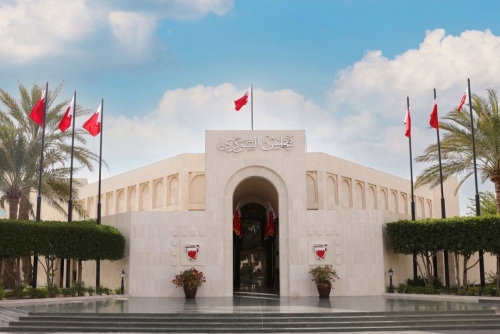Shura Council to discuss today expat remittance tax proposal and its risks
TDT | Manama
Email: mail@newsofbahrain.com
The Shura Council will meet today to discuss key issues, including a proposed tax on expatriate remittances.
The Financial and Economic Affairs Committee has previously reviewed the draft law, which suggests taxing outward financial transfers based on two separate legislative proposals from the Council of Representatives.
It has recommended that the Shura Council reject the proposal, citing concerns over unintended consequences.
The committee acknowledged the reasoning behind the tax but warned it could lead to a drop in legally processed transfers, pushing transactions into unregulated channels as people seek to avoid the levy.
Purpose
This, it cautioned, could encourage money laundering, spur black market activity, or lead to greater cryptocurrency reliance, all of which would undermine the tax’s intended purpose.
The committee further argued that such a move would damage Bahrain’s standing as a banking and financial hub.
Another sticking point is the law’s inconsistency with Bahrain’s existing commitments under international and bilateral tax agreements, as well as treaties covering investment protection.
Obligations
The committee flagged that the draft law overlooks these obligations, raising the risk of conflicts.
Practical challenges were also highlighted.
The committee pointed to the difficulty of distinguishing between different types of overseas payments, with many conducted through mobile apps, credit cards, and digital wallets — often for purchases or bill payments — making enforcement difficult.
Treaties
The Shura Council will also discuss Bahrain’s accession to the 1969 Vienna Convention on the Law of Treaties.
The Foreign Affairs, Defence, and National Security Committee has submitted a report recommending approval of the draft law formalising the country’s participation in the agreement.
Bahrain’s move to join the convention follows efforts to reinforce its position as a regional and global centre for commercial dispute resolution.
Steps
Recent steps include a decree establishing the Council for the Development of International Commercial Dispute Resolution Mechanisms, alongside existing institutions such as the Bahrain Chamber for Dispute Resolution and the GCC Commercial Arbitration Centre.
The convention sets out a framework for treaty drafting and enforcement, establishing international norms and ensuring consistency in agreements between states.
Often referred to as the “treaty of treaties”, it is regarded as a cornerstone of international law. Proposal Meanwhile, the council will discuss a proposal to amend Article 20 of the Anti-Smoking and Tobacco Control Law.
The Services Committee has reviewed the measure and recommended approval.
The amendment aims to restrict the sale and distribution of herbal and non-herbal substances marketed as tobacco alternatives.
Penalties
Even products without nicotine would fall under the ban, with penalties including business closures for up to three months and confiscation of offending goods.
The committee said the law forms part of a wider effort to raise awareness about smoking and the risks of alternatives.
The debate, it noted, would help bring attention to the different forms of these products, what they contain, and their potential harm, and clarify the legal implications of their sale.
Related Posts

